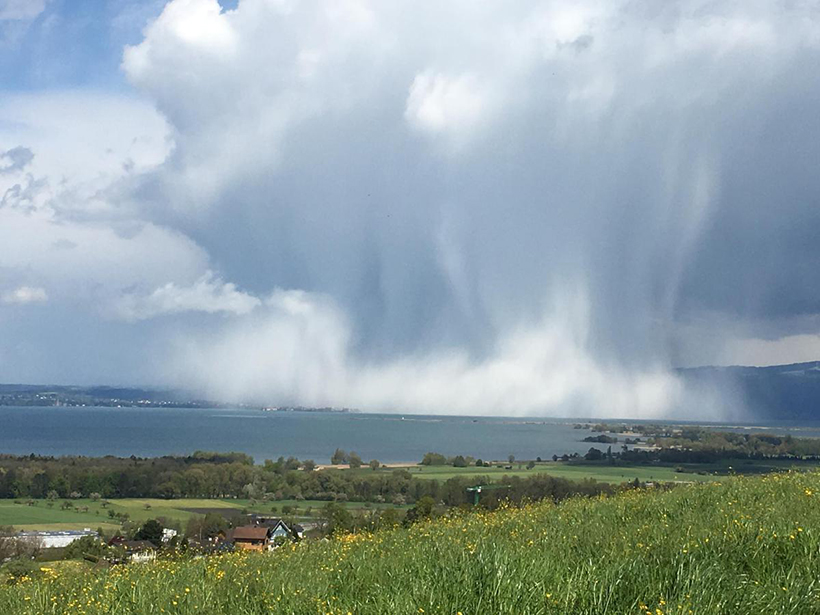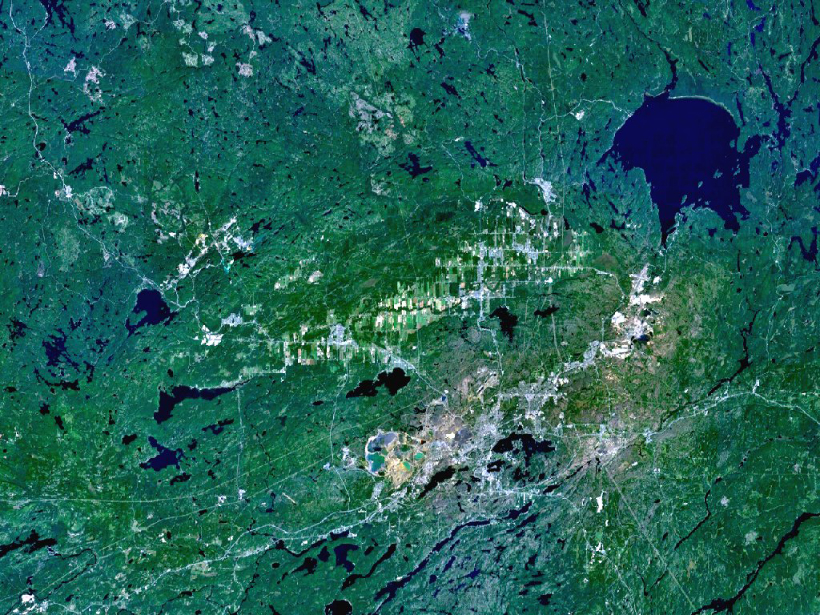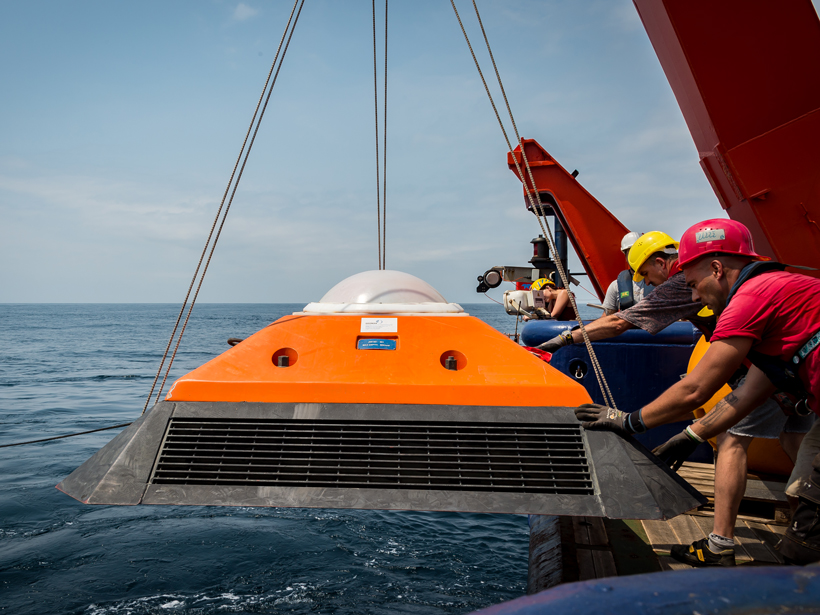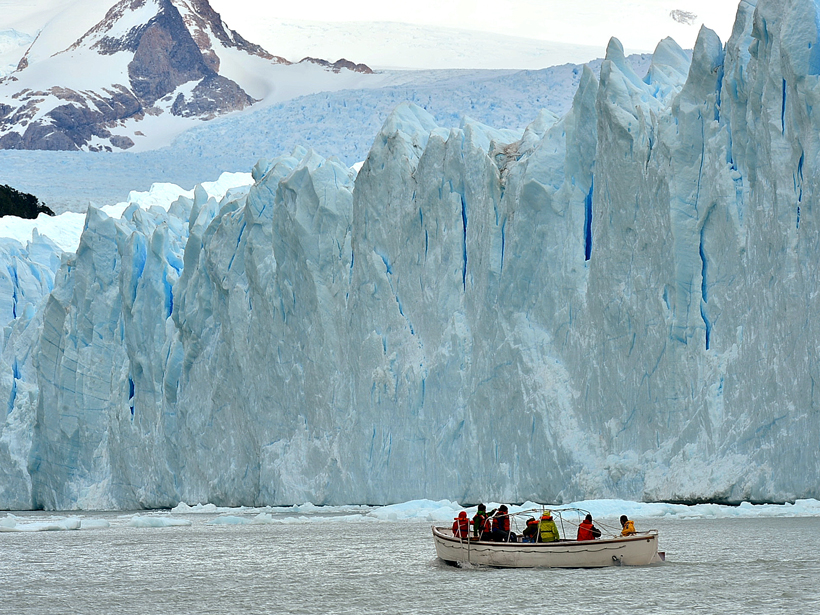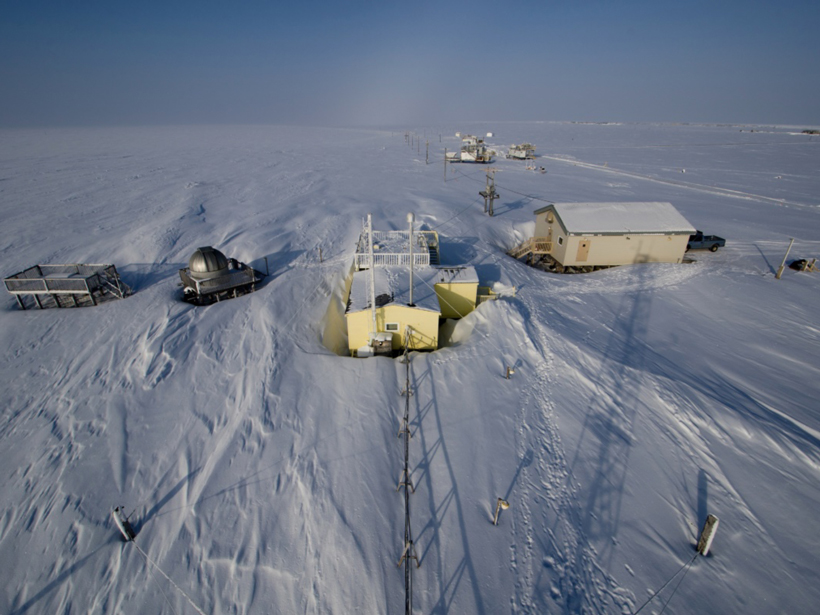Formation of nanometer-scale quartz beads could promote linear “slickenline” patterns and facilitate fault movement.
Sarah Stanley
Sarah Stanley, a freelance writer for Eos, has a background in environmental microbiology but covers a wide range of science stories for a variety of audiences. She has also written for PLOS, the University of Washington, Kaiser Permanente, Stanford Medicine, Gladstone Institutes, and Cancer Commons, a nonprofit that works with cancer patients.
The Future of Earth Looks Drier…but Just How Dry?
New analysis of soil moisture projections from climate models could help resolve a discrepancy between expected increases in aridity and precipitation over land.
New Supercomputers Allow Climate Models to Capture Convection
Scientists evaluate the latest version of a fine-scale climate model by simulating a decade of precipitation patterns across Europe.
Ancient Impact May Have Triggered Long-Term Volcanic Eruptions
Scientists revisit Canada’s Sudbury crater in light of new evidence from other planets that suggests an alternative postimpact history.
First Detailed Study of Circulation off Angola
New data give scientists insight into the eastern boundary current off Angola, helping them to evaluate and assess why simulations create sea surface temperature biases in the region.
Faulty Assumptions Impair Earthquake Hazard Assessment in Italy
Along faults in the Central Apennine Mountains, weather and landslides may cause rock exposure that is mistakenly attributed to earthquakes.
In Patagonian Lakes, Glacial Meltwater Lies Low
A new study reveals key differences in ice-water interactions between glaciers that flow into lakes and glaciers that end in the sea.
Autonomous Floats Shed New Light on the Ocean’s Many Hues
Argo float data reveal regional deviations from existing models of the relationship between ocean color and biogeochemistry.
Spacecraft Returns Its First Data on Martian Solar Irradiance
Scientists demonstrate the capabilities and limitations of the mathematical model used to calculate solar irradiance using measurements from NASA’s Mars Atmosphere and Volatile Evolution (MAVEN).
Black Carbon Measurements in the Arctic Get an Upgrade
Long-term data of higher accuracy could help improve global climate models and reveal trends in black carbon’s influence on Arctic climate.



